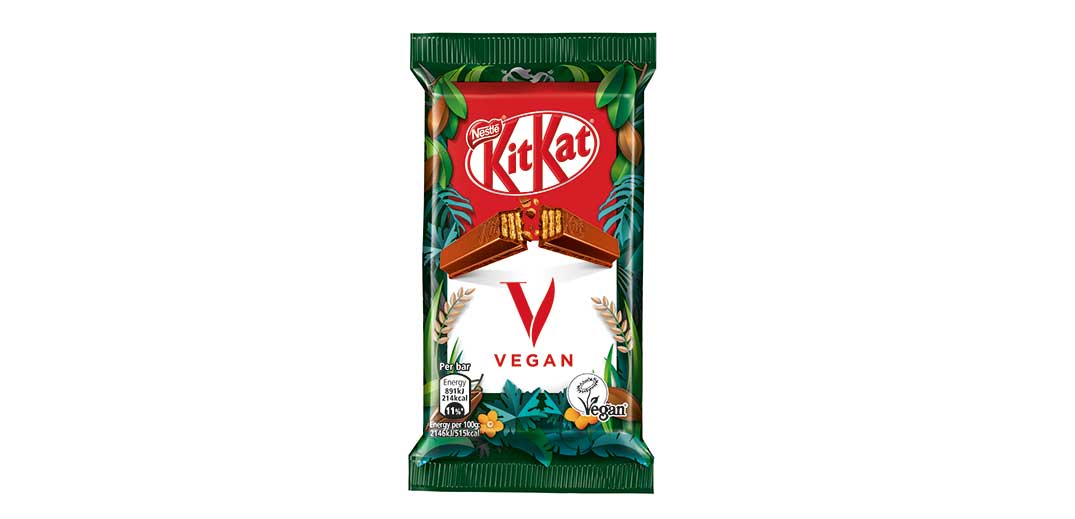
As our co-editor showcases each January with an annual list of new products, the plant-based food movement is less of a trend and more of a surge. But this shift is not just about weaning people off meats or dairy: Vegan chocolate is one indulgence we will increasingly see at stores and online in the coming months as more consumers consider alternatives to dairy products, seek healthier options or have the food industry’s global impact in mind.
Of course, one way to go the vegan chocolate route is to go all-in on dark chocolate. The darker the chocolate, generally the less sugar and more antioxidants you’ll score anyway. Plus, there’s a less of a chance a dairy-based ingredient such as milk powder will sneak into those bars. Though there is often a risk that a brand’s chocolate may have come in contact with ingredients such as milk or soy (hence those pesky disclaimers on the wrappers), many companies, including Chocolove, make it clear their products are kosher, i.e., their non-dairy options have not come into any contact with milk.
But not everyone has an affection for dark chocolate, and in any event, as plant-based alternatives to dairy milk keep improving in taste and texture, watch for more specialty chocolatiers and the larger candy manufacturers to venture into vegan chocolate options.
Nestlé starts a new KitKat Club
No, not that Kit Kat Klub — we’re not talking about the setting of Cabaret or similarly-themed clubs in London or New York. One of Nestlé’s more recent products could nudge other chocolatiers to roll out similar products. Earlier this month, the food giant announced that an all-vegan KitKat bar will hit store shelves later this year in the United Kingdom. The company said soy- or almond-based ingredients created “off-notes” — and the rice-based substitution for dairy in these bars was an effort two years in the making, Bloomberg reported.
No word yet as to when that vegan chocolate goodness will make its way across the pond.
For the most part, global chocolate brands have not deigned to the vegan chocolate trend quite yet, but if Nestlé listened to chatter on social media, watch for other leading brands to do the same. Companies like Nestlé also must acknowledge the worldwide shifts in eating habits — the global food giant noted that the number of vegans in the U.S. have quadrupled over the last several years.

Change is already underway. Last year, Lindt, under its Hello brand, introduced a line of vegan chocolate bars that eschew dairy for oat milk.
Can’t wait for the vegan chocolate KitKat?
That being said, if you find dark chocolate too bitter and want that creamy milk chocolate mouth feel without the guilt, plenty of options are available. And no, you don’t need to be close to a Whole Foods, Harris Teeter or Sprouts. Endangered Species, for example, makes a dreamy 55 percent dark chocolate bar with oat milk that’s available at some Target stores. And for those who believe the day should start with chocolate at breakfast, Nutiva makes an alternative to Nutella should you be avoiding all and any dairy (in this Nestlé spreadable product’s case, the culprit dairy ingredient is milk powder).
We could write about vegan chocolate options all week, but here’s what to know about chocolatiers including Divine, Vesta, Hu, Alter Eco and Raaka, among others: Many of them are committed to ethical sourcing or have fair trade certification. Several of these companies also make no-sugar options; others say they avoid ingredients that give consumers pause such as palm oil.
If you find these options to be a little pricey, here’s a trade secret: Wander into your local Big Lots, Grocery Outlet, a dollar store, or one of those discounted stores of that ilk, you’d be surprised what you can find on the vegan/organic/fair trade/ethically made front. Just stock up, as if you decide to wait and enter that same store the next day, chances are those goodies will be gone.
Image credit: Tamas Pap/Unsplash

Leon Kaye has written for 3p since 2010 and become executive editor in 2018. His previous work includes writing for the Guardian as well as other online and print publications. In addition, he's worked in sales executive roles within technology and financial research companies, as well as for a public relations firm, for which he consulted with one of the globe’s leading sustainability initiatives. Currently living in Central California, he’s traveled to 70-plus countries and has lived and worked in South Korea, the United Arab Emirates and Uruguay.
Leon’s an alum of Fresno State, the University of Maryland, Baltimore County and the University of Southern California's Marshall Business School. He enjoys traveling abroad as well as exploring California’s Central Coast and the Sierra Nevadas.














